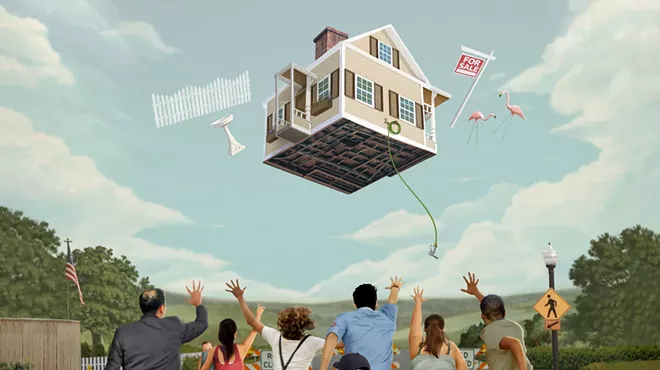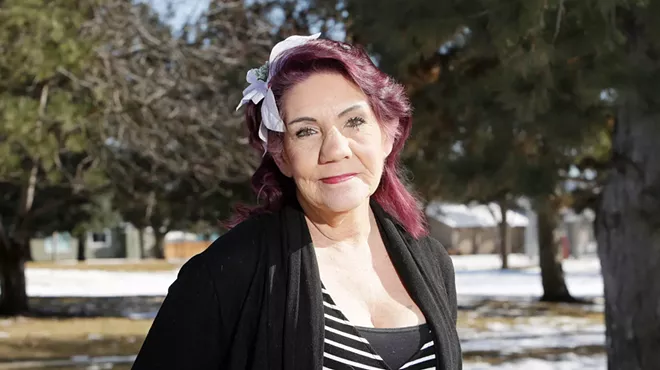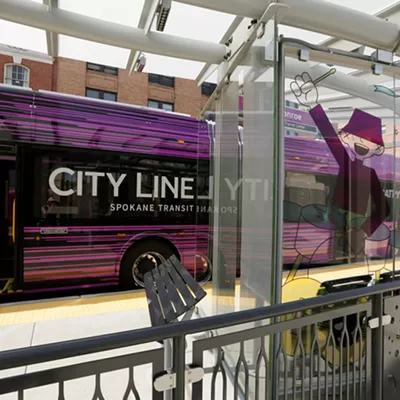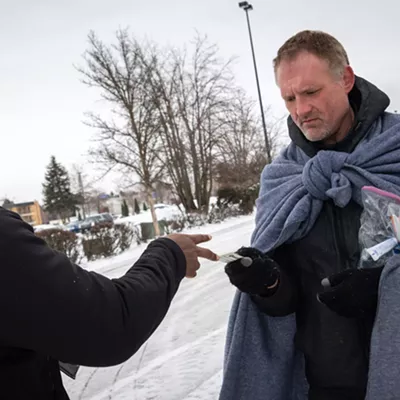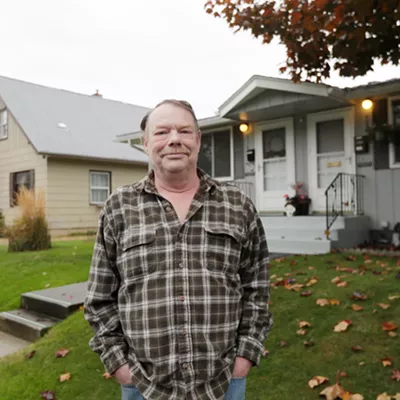
For Chris Pick, the freedom to work anywhere has been a game-changer.
Pick moved to Spokane in June after the Seattle-based dating app company he works for announced a permanent switch to remote work. He doesn't have to commute anymore, but even if he did, a well-timed flight from Spokane might actually beat his previous commute — an hour-and-a-half journey from Bainbridge Island involving a bus, ferry and walk through downtown Seattle.
"Now I get three hours back of my day," Pick says. "Fifteen hours a week, that's like two full workdays I get back to myself and family."
Spokane is one of dozens of midsize American cities experiencing what some have referred to as a "Zoom boom" — an influx of workers from major tech hubs like Seattle and San Francisco moving to smaller cities to work remotely.
Many cities have welcomed the money that remote workers bring, but the income disparity has also led to concerns about rising home prices and a local population unable to compete with buyers bringing six-figure salaries.
Other than a bumper sticker that says "Go back to California," Pick says he hasn't encountered any hostility or resentment over his status as a transplant. Spokane is an incredibly welcoming city, he says. It's part of what drew him here in the first place.
"Pretty much everyone we've met seems to be genuinely nice," Pick says. "People have been real friendly."
Pick didn't expect to end up in Spokane. After his work went remote, he and his wife first tried looking for houses in Dallas, where Pick has family members. But after a few months, a combination of traffic, taxes and family drama convinced them to look elsewhere.
Their next plan was Vancouver, Washington. But while scrolling through Zillow, Pick noticed a cluster of houses in Spokane that seemed to match everything they were looking for. Pick and his wife didn't know much about Spokane and had never been to the area, but they were intrigued. They decided to visit and quickly fell in love with the vibrant seasons, affordability and lack of "hustle and bustle," Pick says.
In June, Pick and his wife bought a house on the outskirts of Spokane, just off South Park Road. It's a short drive from downtown, but still has the rural feel and acreage that Pick was looking for when he left the Seattle area.
Spokane's housing market is fiercely competitive, but much of the competition is concentrated around smaller, midrange houses. By opting to spend more on a larger house, Pick and his wife were able to avoid much of the competition. Pick says they were only able to afford the more expensive option because of money from selling their Bainbridge Island house, which more than doubled in value since they purchased it in 2014.
Pick says he's conscious of people's concerns about rising home prices. He doesn't have a perfect solution — no one does — but he does think the city could consider offering tax abatements to the owners of vacant office buildings if they convert them into low-income housing.
Even though his main employer is based elsewhere, Pick says he and other recently arrived remote workers still contribute to the economy in other ways. As more tech workers spread out to rural areas, Pick predicts that many of them will collaborate and start small businesses. Pick has already worked on a few local startups of his own.
"Before you know it, you've got a business starting here that's paying taxes here," Pick says. "So from that standpoint, it's kind of one of the benefits."
The influx of remote workers has also been beneficial for co-working spaces in the Spokane area. Ann Long, who started Burbity Workspaces with her husband in 2019, estimates that half of her clients are recent arrivals in Spokane. Long also thinks the rise in remote work will translate to more small local businesses in the future.
"Coworking not only is a great way to meet other small business owners and like-minded people, it's an inexpensive way for you to establish your presence," Long says.
It's not just Zoom fatigue that's driving some remote workers to coworking spaces. Some of Long's clients seek out coworking spaces because they lack reliable internet at home. Wireless connections can be spotty in the rural parts of Spokane.
More than half a year after moving, Pick says his favorite thing about Spokane so far is the people. His least favorite thing might be the potholes, or getting stuck waiting for a train to pass. But for transplants like Pick who are used to battling Seattle gridlock, waiting for the occasional train to pass is a small price to pay.
"I know a lot of locals think the traffic's horrible around here, but I mean, compared to almost everywhere else, this is pretty good," Pick says. ♦



